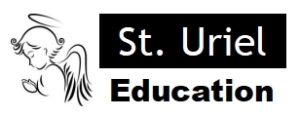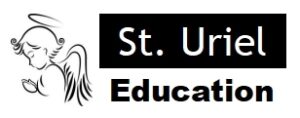Financial literacy is one of the key literacies that have long been disregarded in mainstream k-12 education. Empowering students with the necessary know-how to effectively cope with with money matters is just as important to students’ overall-growth and personal development as any other (standard) literacy.
According to investopedia, financial literacy is “the ability to understand and effectively use various financial skills, including personal financial management, budgeting, and investing.” Investopedia further states that financial literacy is the bedrock of one’s relationship with money.
Knowing how to manage one’s personal finance will enable students to nurture a good and fruitful relationship with money and will also drive them to deal with money in a more responsible way.
In this post, I am sharing with you this collection of excellent financial literacy books that I have personally read (or rather listened to) and have immensely enjoyed. I highly recommend them to teachers and parents.
You can use these resources to help students understand the foundational skills underlying financial literacy and to develop a working knowledge of coping mechanisms to use to manage one’s personal finance.
In addition to these financial literacy books, I also recommend these economics and financial literacy websites to use with students.
1. Why Didn’t They Teach Me This in School?: 99 Personal Money Management Principles to Live By, by Cary Siegel
“99 Personal Money Management Lessons to Live By was initially developed by the author to pass on to his five children as they entered adulthood. As it developed, the author realized that personal money management skills were rarely taught in high schools, colleges and even in MBA programs. Unfortunately, books on the subject tend to be complicated, lengthy reads.
The book includes eight important lessons focusing on 99 principles that will quickly and memorably enhance any individual’s money management acumen. Unlike many of the personal money management books out there, this book is a quick, easily digested read that focuses more on the qualitative side than the quantitative side of personal money management. The principles are not from a text book. Rather, they are practical principles learned by the author as he navigated through his financial life”.
2. Your Money or Your Life: 9 Steps to Transforming Your Relationship with Money and Achieving Financial Independence, by Vicki Robin (Author), Joe Dominguez (Author),
“For more than twenty-five years, Your Money or Your Life has been considered the go-to book for taking back your life by changing your relationship with money. Hundreds of thousands of people have followed this nine-step program, learning to live more deliberately and meaningfully with Vicki Robin’s guidance.
This fully revised and updated edition with a foreword by “the Frugal Guru” (New Yorker) Mr. Money Mustache is the ultimate makeover of this bestselling classic, ensuring that its time-tested wisdom applies to people of all ages and covers modern topics like investing in index funds, managing revenue streams like side hustles and freelancing, tracking your finances online, and having difficult conversations about money.”
3. Broke Millennial: Stop Scraping By and Get Your Financial Life Together , by Erin Lory
“Broke Millennial shows step-by-step how to go from flat-broke to financial badass. Unlike most personal finance books out there, it doesn’t just cover boring stuff like credit card debt, investing, and dealing with the dreaded “B” word (budgeting). Financial expert Erin Lowry goes beyond the basics to tackle tricky money matters and situations most of us face #IRL, including:
Understanding your relationship with moolah: do you treat it like a Tinder date or marriage material?Managing student loans without having a full-on panic attackWhat to do when you’re out with your crew and can’t afford to split the bill evenlyHow to get “financially naked” with your partner and find out his or her “number” (debt number, of course) . . . and much more.”
4. Money: Master the Game: 7 Simple Steps to Financial Freedom, By Tony Robinson
“Based on extensive research and one-on-one interviews with more than 50 of the most legendary financial experts in the world – from Carl Icahn and Warren Buffett, to Ray Dalio and Steve Forbes – Tony Robbins has created a simple seven-step blueprint that anyone can use for financial freedom. Robbins has a brilliant way of using metaphor and story to illustrate even the most complex financial concepts – making them simple and actionable. With expert advice on our most important financial decisions, Robbins is an advocate for the listener, dispelling the myths that often rob people of their financial dreams. “
5. The Total Money Makeover: Classic Edition: A Proven Plan for Financial Fitness, by Dave Ramsey
“With The Total Money Makeover: Classic Edition, you’ll be able to:
Design a sure-fire plan for paying off all debt—meaning cars, houses, everything Recognize the 10 most dangerous money myths (these will kill you)Secure a big, fat nest egg for emergencies and retirement!Includes new, expanded “Dave Rants” sidebars tackle marriage conflict, college debt, and more. All-new forms and back-of-the-book resources to make Total Money Makeover a reality.”
6. Rich Dad Poor Dad: What the Rich Teach Their Kids About Money That the Poor and Middle Class Do Not, by Robert T, Kiyosaki
“Rich Dad Poor Dad is Robert’s story of growing up with two dads — his real father and the father of his best friend, his rich dad — and the ways in which both men shaped his thoughts about money and investing. The book explodes the myth that you need to earn a high income to be rich and explains the difference between working for money and having your money work for you.”
Disclaimer: some links in this post are Amazon affiliate links.


Leave A Comment